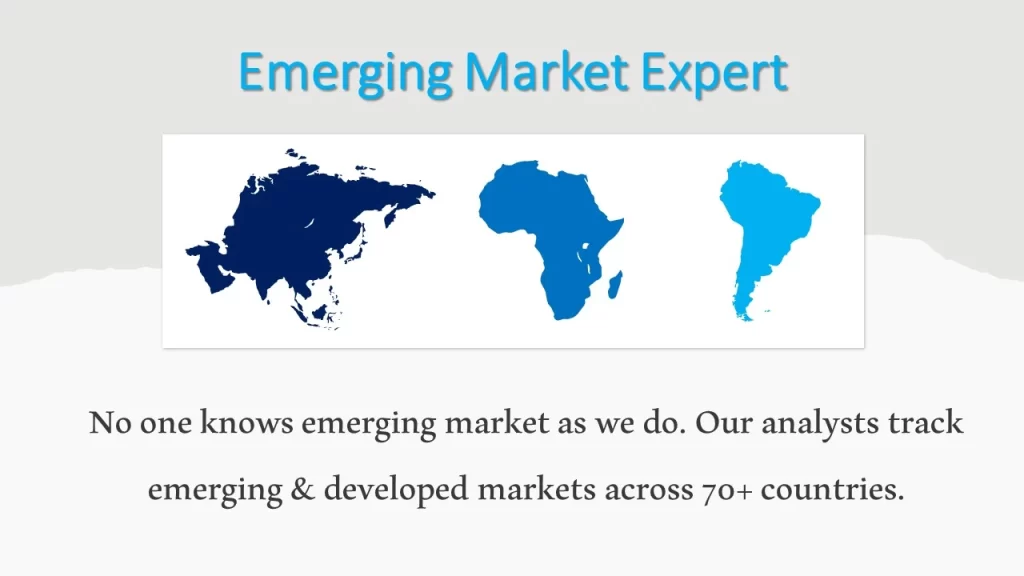Indonesia real estate market is projected to attain a strong growth rate in the coming years driven by a growing population and expanding middle class along with government efforts aimed at supporting the housing industry.
Major Indonesia Real Estate Market Drivers and Emerging Trends
Real estate market in Indonesia boasts significant potential, driven largely by its population of more than 275 million and continuing to grow. As the population increases alongside rapid urbanization, the demand for residential buildings and affordable housing is rising particularly in major cities.
Factors such as immigration, job availability, and changing lifestyles are propelling urbanization thereby amplifying the demand for housing units. Affordable housing initiatives supported by government efforts and foreign investment are projected to significantly contribute to market growth in the coming years. Moreover, the country’s middle class is growing rapidly which enhances individuals’ purchasing power to buy homes.
Why Purchase a Standard Report When You Can Customize this Report
Please Let us know your Customization Requirements
As Indonesia’s economy grows, investment in real estate especially from domestic investors has increased, contrasting with China which is becoming too costly and experiencing a stagnant economy. This situation has led to a surge in investors exploring options in countries such as Indonesia. Investing in Indonesia’s real estate is seen as a long-term strategy and a relatively secure one as multinational companies are keen on establishing themselves in densely populated countries. The property market’s success is also largely attributed to Indonesia’s advantageous geographic location.
In addition, the introduction of numerous government initiatives designed to boost investment in infrastructure projects is further bolstering Indonesia real estate market size expansion. The government launched the One Million Houses program which aims to build at least one million housing units each year. As of August 2023, the Ministry of Public Works and Public Housing reported approximately 634,132 units constructed under this initiative.
Are you Looking for a Partner for your Indonesia Market Entry and Business Expansion plans? GMI Research with decades of experience tracking Indonesia market is the right choice for you.
Even though property prices have risen in the last decade, the government’s plan to lengthen the maximum residential mortgage term to 35 years demonstrates its commitment to making housing more accessible for lower income families. Indonesia’s evolving financial sector which includes numerous financing options like appealing mortgages and loans is further contributing to market growth.
In addition, following the deployment of the high-speed rail connecting Jakarta and Bandung, the real estate industry is attracting growing interest particularly in these two cities. Furthermore, the implementation of effective regulations that facilitate foreign investment in real estate is contributing significantly to market growth. The recent adjustments made by the government to relax foreign ownership rules have revitalized the real estate market. The relaxation in the property ownership regulations is intended to encourage foreign investment which permits foreigners to purchase property on the same terms as local buyers. In addition to this, the introduction of online platforms for real estate transactions along with virtual interactive tours is simplifying the investment process for local and foreign buyers which contributes to market growth.
The booming tourism sector is also boosting the need for commercial properties including resorts and hotels. Several real estate and tax regulations have been relaxed which enables foreigners and locals to make investment and acquire properties for the thriving hospitality sector in the country. Tourism has generated substantial foreign currency inflows for Indonesia through foreign visitor receipts along with investments in tourism-related ventures. It often leads to infrastructure enhancements for the local economy including the real estate sector.
However, a key hurdle for market expansion is the limited availability of reasonably priced land. The insufficient access to low-cost funding options that align with housing financing needs continues to be a barrier to delivering affordable housing. There is also a challenge posed by the limited qualified developers eligible to collaborate with the government and financial institutions. The country also grapples with serious problems of corruption and bureaucracy which is highlighted by its position in 73rd place in the latest EoDB Index by the World Bank.
According to property type the market is segmented into residential, hotel, office, and other categories. The residential market is likely to sustain its strong performance even with delays in lowering interest rates. Analysts anticipate robust interest in landed housing propelled by government support along with an expanding middle-income demographic. Furthermore, survey on residential property conducted by Bank Indonesia indicated a 1.96 percent increase in new housing prices in comparison to the previous year which demonstrates the sector’s resilience.
Additionally, the apartment market is also presenting potential opportunities. Many view the current situation as a favorable “time to buy” as end users dominate the market and developers prioritize clearing unsold inventory. This has contributed to price stability and a strong focus on sales driven by appealing discounts and promotional campaigns.
The hospitality sector which includes hotel and various types of commercial accommodations in Indonesia is also witnessing substantial growth primarily fueled by the thriving tourism industry. With its range of attractions, the country has become a favored spot for foreign and domestic tourists. The government’s strategic marketing of super-priority destinations along with the simplification of real estate and tax regulations have spurred further investment in the hospitality industry.
Top Market Players
Several major players within the market include Lippo Group, Sinar Mas, Ciputra, Agung Podomoro, among others.
Segments covered in the Report:
The Indonesia Real Estate Market has been segmented on the basis of Property Type. Based on the Property Type, the market is segmented into Residential Real Estate, Office Real Estate, Hotel Real Estate, Retail Real Estate and Others.
|
Report Coverage |
Details |
| Market Revenues (2023) |
USD Million |
| Market Base Year |
2023 |
| Market Forecast Period |
2024-2031 |
| Base Year & Forecast Units |
Revenues (USD Million) |
| Market Segment | Property Type |
| Regional Coverage | Indonesia |
| Companies Profiled | Lippo Group, Sinar Mas, Ciputra, Agung Podomoro, among others; a total of 4 companies covered. |
| 25% Free Customization Available | We will customize this report up to 25% as a free customization to address our client’s specific requirements |
Market Segmentation
Indonesia Real Estate Market by Property Type
-
- Residential Real Estate
- Office Real Estate
- Hotel Real Estate
- Retail Real Estate
- Others
Indonesia Real Estate Market Leading players (Option 1: Free 25% Customization – Profiles of 5 Additional Companies of your Choice)
-
- Lippo Group
- Sinar Mas
- Ciputra
- Agung Podomoro
Related Reports
- Published Date: Oct-2024
- Report Format: Excel/PPT
- Report Code: GR24AB-01-00315
Licensing Options
Single-User License:
The report is used by the purchaser (One Individual) only
Multi-User License:Report is shared with maximum 5 users (employees) including the purchaser of the purchasing corporation only
Corporate License:
Report is shared with unlimited user (employees) of the purchasing corporation only
The report is used by the purchaser (One Individual) only
Multi-User License:Report is shared with maximum 5 users (employees) including the purchaser of the purchasing corporation only
Corporate License:
Report is shared with unlimited user (employees) of the purchasing corporation only
Indonesia Real Estate Market and Analysis Report – Opportunities and Forecast 2024-2031
$ 4,499.00 – $ 6,649.00
Why GMI Research







